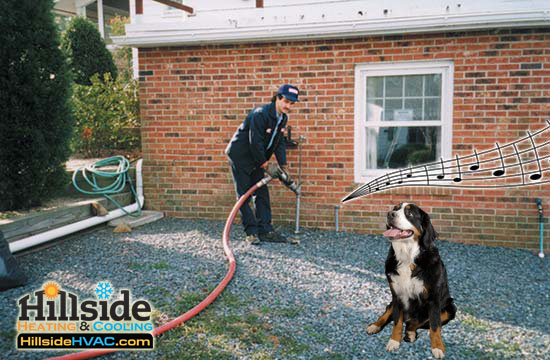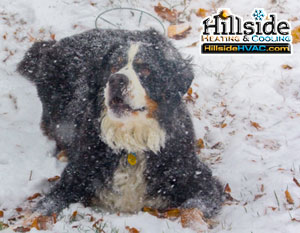Great news about oil prices, filling safety, no heat tips, and more!
Prices Are Down and Savings Are Up

Because of falling oil prices, most people have been saving a lot of money on heating costs over the past two years.
(Crude oil prices recently plunged to their lowest level since December 2003!)
We encourage you to invest your fuel savings back into your home so you can save even more money.
We’re ready to help! Whether it’s a repair, a tune-up or a new furnace, boiler, water heater or oil tank, our trained technicians can take care of virtually any issue that affects your home comfort.
We can also help you save money and increase your peace of mind with our Heating Maintenance Plan.
Some customers who have replaced old, inefficient oil boilers have cut their annual heating expenses by as much as 40%! And paying for your replacement equipment is as easy as pie, thanks to great financing programs.
Low prices won’t last forever, so let us know how we can help!
Contact us today to request a free estimate on new heating equipment. We also welcome your call: 302-738-4144 (Delaware) or 410-398-2146 (Maryland).
What Does a Safe Delivery of Fuel Oil Sound Like?

Do you have a basement oil tank? If you do, you should hear a whistling noise whenever our driver makes a delivery. This is perfectly normal.
In addition to your oil tank, your heating oil storage system includes the fill pipe, vent pipe, and vent alarm. Our driver connects the hose from his oil truck to the fill pipe when making a delivery of fuel. As oil flows into the tank, air is pushed back out. As the air goes through the vent alarm (located between your tank and vent pipe), it makes a whistling sound. When the whistling stops, the tank is just about full.
This prevents overfilling and the possibility of a spill. Safety codes do not allow us to deliver your fuel if the vent alarm is not working.
Do You Have the Proper Piping?
Other safety codes must be followed so we can ensure safe deliveries to your home. One of the most important codes involves your fill and vent pipes. Older piping made from Polyvinyl Chloride (PVC) must be replaced because this plastic piping becomes brittle during winter conditions, making it more likely to crack when a tank is being filled.
This is such an important issue that many insurance companies are now enforcing a No-Fill mandate for tanks with PVC piping.
If this is an issue for you, we can easily resolve it by upgrading your plastic piping to more durable iron or copper piping. If you have any questions or concerns about your oil storage system, please feel free to contact us.
Ask the Expert
Q: What’s the first thing I should do if my heat stops working?
A: The first thing you need to do is to stay calm. Remember there are many simple reasons that can cause your heat to stop working. Sometimes, you may even be able to fix the problem yourself.
Here are common reasons for losing heat:
 |
You may have tripped a circuit breaker or blown a fuse. |
 |
Your oil tank may be empty. Consider automatic delivery. |
 |
Your thermostat may be on the wrong setting. Also, if the display screen on a digital thermostat is blank, you either need new batteries or the power supply has been interrupted. |
 |
The power switches to your heating system may have been turned off accidentally. |
As a last resort for getting your heat back, press the reset button on your oil burner once. If your furnace or boiler starts to run again but shuts down after a few minutes, do not press the reset button again. Pressing it more than once can flood the system with oil and result in a costly repair.
For your convenience, we have put together a No-Heat Checklist that gives you a step-by-step guide that shows you everything you should check before calling us for emergency service. Why not bookmark it now for easy access?
If you go through all of these tips and can’t figure out the problem, it’s time to call us: 302-738-4144 (Delaware) or 410-398-2146. (Maryland).
When our service technician arrives, tell him everything you did to the system and if anything out of the ordinary happened, such as an unusual noise, smoke or a strange smell.
In many cases, this will help our technician find the problem—and get your heat back on—faster.
More Hot Tips
- Mark the circuit breaker (or fuse) that controls your heating system.
- Make sure you know the location of your system’s power switches.
- Regularly check the condition of your furnace filter, or the water gauge level if you have a boiler.
Recent Testimonials from Hillside Customers
 Hillside is always proud to boast when our employees receive reviews from customers. Our service department has been busy tuning up and repairing equipment. Here are a few recent testimonials from customers of Hillside’s maintenance, repairs, and installations.
Hillside is always proud to boast when our employees receive reviews from customers. Our service department has been busy tuning up and repairing equipment. Here are a few recent testimonials from customers of Hillside’s maintenance, repairs, and installations.
“George & Randy were courteous and very pleasant. They did a great & timely job.” -Karen Mc. from Newark 1/28/2016
“Mike was great, he explained everything he was doing. Thank you.” -Walter C. from North East, MD 1/20/2016
“Great work!” -Slavin Insurance from Elkton, MD 1/7/2016
“Excellent job by Mike & Luke! Good teamwork!!!”” -Lois Mc. from New Castle 12/2/2015
“Mike & Randy were a good team. Mike especially went the extra mile for service.” -Elaine K. from Newark 12/17/2015
“The tech explained keeping the furnace clean & tuned helps extend furnace life.” -Tom G. from Newark 12/22/2015
Give Hillside a call for prices and options: DE: 302-738-4144 or MD: 410-398-2146
 “Just got my electric bill…yipes. What can I do to get this monthly expense under control?”
“Just got my electric bill…yipes. What can I do to get this monthly expense under control?” Carbon monoxide is a gas that is emitted from furnaces, fireplaces, stoves, portable gas heaters, automobiles, outdoor grills, and gas-powered tools. Home heating systems are designed to vent CO safely to the outdoors, but when venting is faulty (blocked or leaky), CO can leak indoors and become deadly.
Carbon monoxide is a gas that is emitted from furnaces, fireplaces, stoves, portable gas heaters, automobiles, outdoor grills, and gas-powered tools. Home heating systems are designed to vent CO safely to the outdoors, but when venting is faulty (blocked or leaky), CO can leak indoors and become deadly.